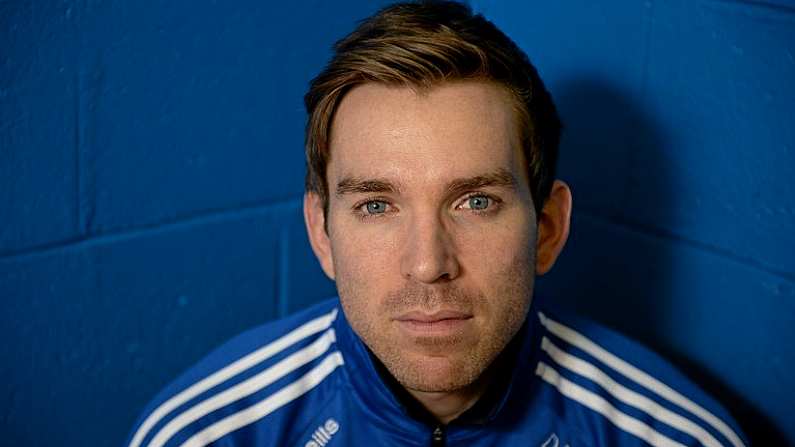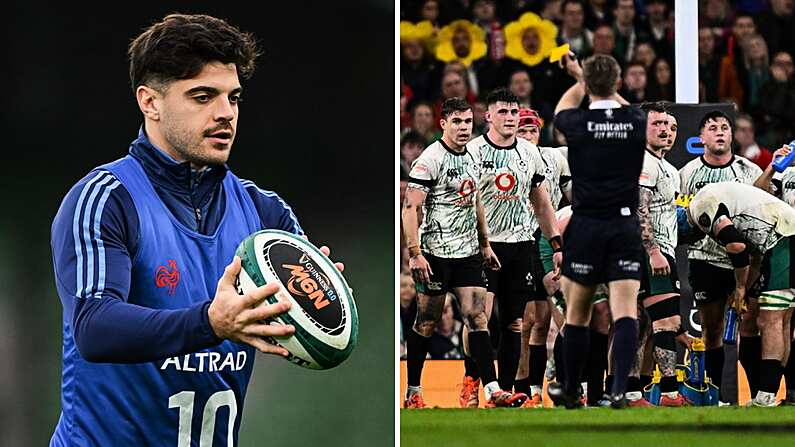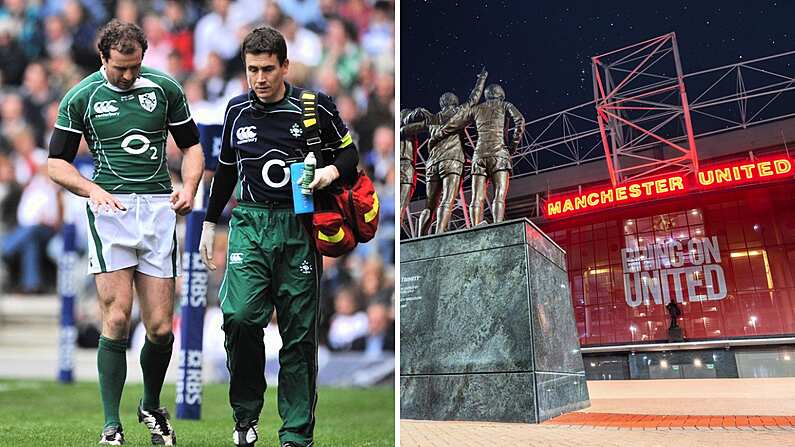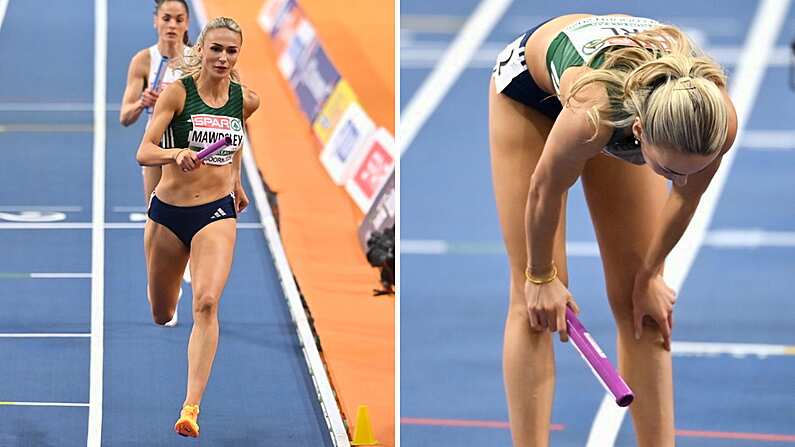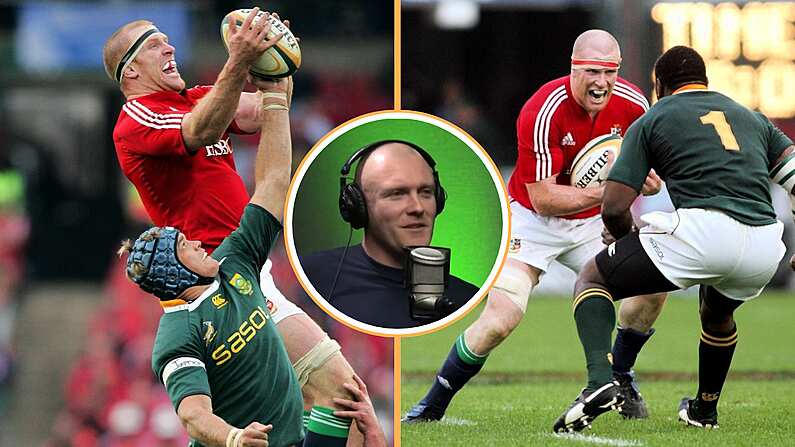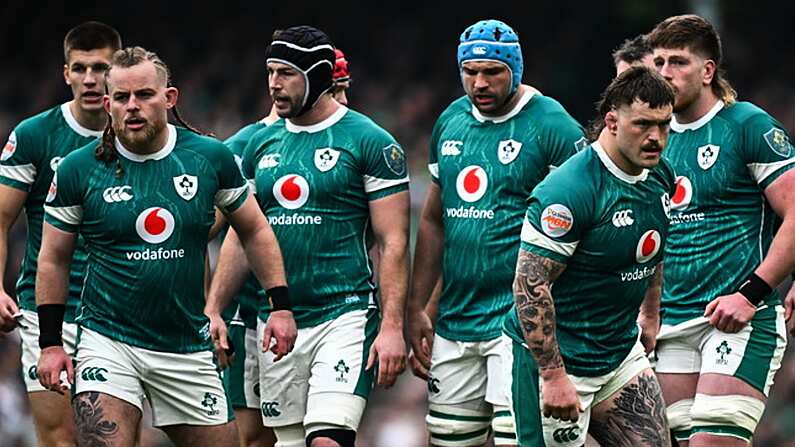Daniel Davey is Leinster's nutritionist and he begins with the bread and butter.
"My main job is to make sure the players understand what to eat", he tells Balls.
He is evidently doing that job well: Leinster are a trilogy from a double while the Dublin footballers, with whom he also works, are the dominant side of their - and possibly any other - generation. He has played Gaelic football to a good standard, too: playing at intercounty level with Sligo and winning a Dublin championship with Ballyboden.
The nature of rugby complicates that pithy job description. Davey deals with 65 players at Leinster on an individual basis, across a range of body types and budgets.
You're looking for the players to be as resilient, strong and fit as possible. The training they do creates the stimulus; that lights the fire. So the fire is lit, then it's about putting the right types of energy into the body to facilitate maximum growth within the muscle tissue.
That means carbohydrate (fruit, bread, rice, pasta) and then you need the right type of protein (meat, dairy) and what you get from supplements is a convenient source of those nutrients.
Sports nutrition is not different, in terms of the foods we eat, to anything else. The timing and the proportion is. You have a small amount at the top of the pyramid that is more supplement-related, and that is where yo are looking to manipulate things, for fine margins and a competitive advantage.
The simplest way to put it is: you have Dave Kearney there, who is a completely different athlete to Tadhg Furlong. Dave covers more distance, Tadhg covers less distance but gets through a different type of work. He is a much bigger man, so he needs less carbohydrate and more protein, to maintain his mass.
Whereas with others, it could do with not eating enough. Certain growing, younger athletes may need to eat eight times a day. They may need a surplus intake of between 500 and a thousand calories. They are covering more ground and are generally more active.
So you're facilitating that all the time, and you are helping the player understand where to get that day-to-day.
And speaking of Furlong...
It's very practical. Any athlete will want to know what to eat. I sit down with them, one-to-one, and go through their food diary. It could be the case that, say, Tadhg Furlong loves his potatoes. So he might be having six potatoes or ten potatoes. So then, I have to say 'Tadhg, you're having too many potatoes'. You can do that the day of a game because potatoes are a good source of energy, but days you're sitting on the couch you're not going to need ten spuds.
He has a kind of potato addiction. Tadhg is somebody you can have fantastic conversations with, because he is from the country and he appreciates food. If you put good food in front of Tadhg, he'll enjoy it, and not just potatoes. But he's been in Dublin for a while now, so his palette has expanded!
The average rugby player (weighing 103kg) needs around 4,000 calories per training day, and around 3,000 on recovery days. The surplus intake in the rugby diet is most pronounced when it comes to protein: a rugby player needs around four times more protein than the average individual, which equates to around seven chicken breasts. Perhaps understandably, players don't make up this chasm in chicken breasts alone, and partly rely on supplement use.
Davey is eager to clear up some misconceptions around supplement use in rugby.
It is really straightforward and transparent. It's not as complicated as it is made out to be. The focus in every elite sporting environment is that the basics are done really consistently. Where supplements fit in specifically is around training. Health is the primary focus, and then you are narrowing it down to a very specific time when supplements are needed throughout the day. It could a case be whether a player has two protein shakes, or doesn't have any. The big thing with supplementation is knowing where the product is coming from, that the right ingredients are being used and that it's HFL-tested.
The ethics are really clear around it. It is from a natural food source - it is a dried protein from milk and that makes up the greatest volume of our supplement intake. So the argument is, why don't we just drink milk all the time? You can't be drinking milk all the time, and you need a variety. Whey protein is a more condensed form of it.
Davey is also engaging when asked if he is concerned about the use of supplements at lower levels, outside of a professional environment.
Does it worry me? I think that nutrition for younger people worries me in a wider sense. I think there are wider concerns than the use a Whey supplement. There are bigger issues around the use of fat burners and pre-workout drinks.
What is required for younger athletes is that at the very top, supplement intake is actually very small. It accounts for 2-3% at the absolute max of the total energy intake.
What needs to be understood is that the reason these athletes are as good as they are is that they cement the basics and they live the basis of eating fruit and veg, nuts and seeds and lean meats day-in, day-out.
Getting back - the big emphasis must be on helping younger athletes and communicating it's a food-first environment here.
Scott Fardy was speaking to Balls to promote Optimum Nutrition, Official Sport Nutrition Partner to Leinster Rugby. Optimum Nutrition’s Gold Standard 100% Whey Protein is now available in SuperValu and Dunnes Stores nationwide.

